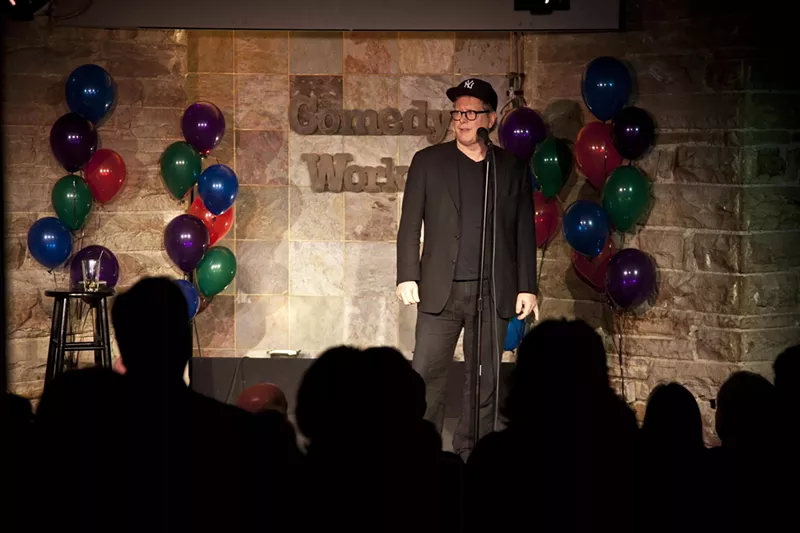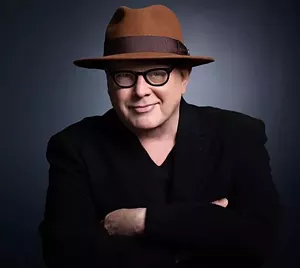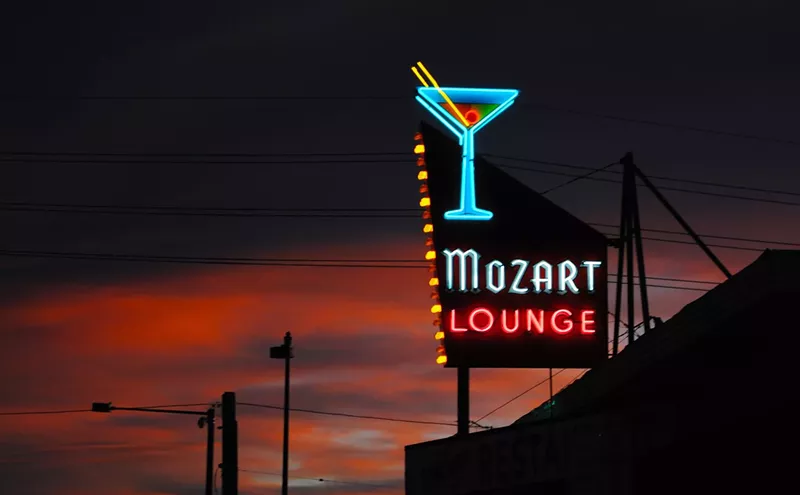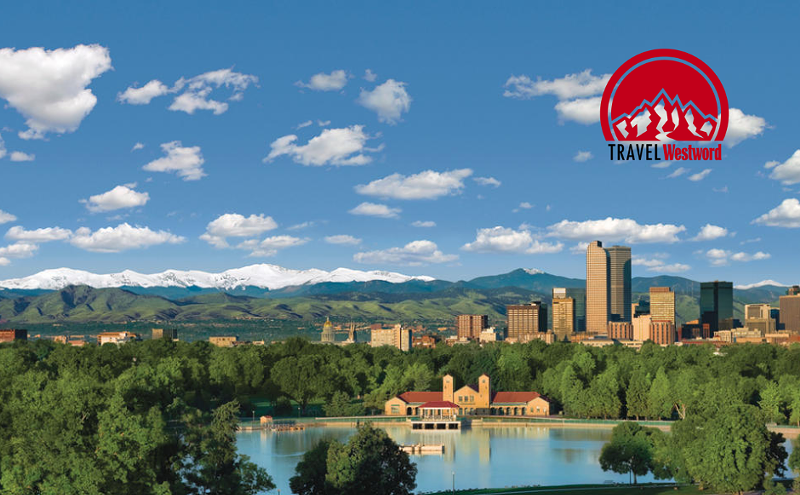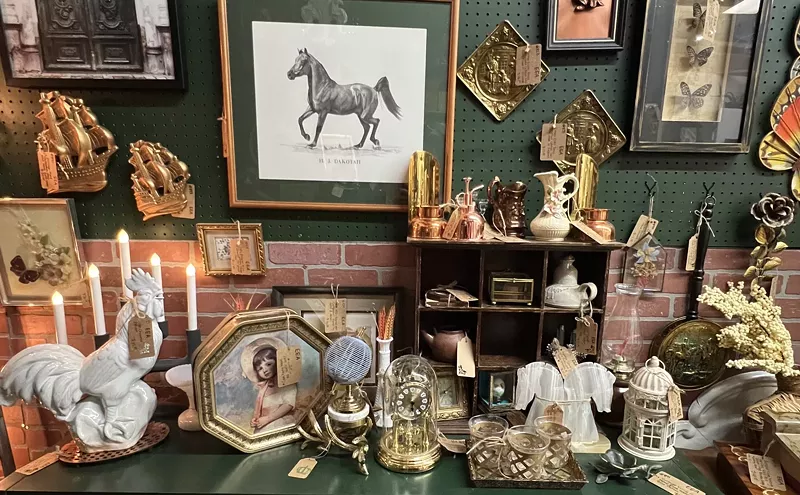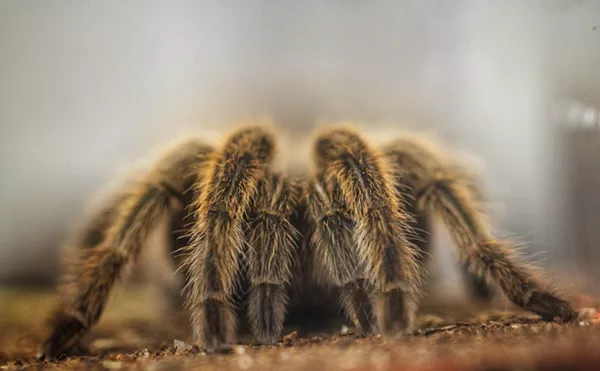Darrell Hammond, the master of mimicry best known for his long run on Saturday Night Live, will bring his unparalleled wit and a treasure trove of impressions to Comedy Works South from Thursday, March 21, to Saturday, March 23.
With iconic portrayals of celebrities and political figures, Hammond has established himself as a comedic virtuoso. As Denver prepares for his arrival, Westword had the opportunity to talk with the comedian about his illustrious career, the art of crafting good impressions and what fans can expect at his performances. In our conversation, Hammond also opened up about the personal challenges he's faced, his transition between comedy and drama, and his aspirations for the future.
Westword: How are you feeling ahead of your upcoming appearance at Comedy Works South?
Darrell Hammond: Comedy Works South is probably my second favorite comedy club in the country, followed by Downtown Comedy Works. Wende Curtis is a wizard. She knows how to set up a club up theater-style, where the audiences are stacked in layers, and also how to get the waitresses in and out without making things too difficult. Both Comedy Works clubs are great places to perform.
Over the years, you've become synonymous with impressions on Saturday Night Live. Can you share more about your process behind developing these, especially for the likes of Bill Clinton and Donald Trump?
It starts by doing a complete background on them to find the consistency in their speech, the way they move their hands and all these small details that they do. Then you study it. If you are on SNL, once you duplicate it, you have to exaggerate it. It's just funnier that way. I think Dana Carvey taught me that lesson when I was on the show.
In my first year, I wasn't doing very well. People kept telling me, "These are really good impressions, but they’re not funny impressions." The key over there turned out to be that I don't say funny things; I say things in a funny way by upsizing shit. For some reason, it's easier to get laughs like that. Also, when it's italicized like that, it's easier to maneuver when you get words that you've never seen before on the air, which happens once in a while. The scripts were pretty much written in disappearing ink, so it’s like walking on marbles all the time, and you’ve really got to be on your toes and able to adjust.
Do you have a favorite impression that you've crafted, or maybe one that you're most proud of?
That’s a tough one. I like doing the preachers. I like doing Al Sharpton and Jesse Jackson because they’re very powerful, I have kind of a drab personality, and they have big personalities. But Clinton, as I look back over the years, is more fascinating now to me than it was then. We used Clinton like Warner Bros. used Daffy Duck; we could do drawing room comedy, slapstick or even Neil Simon-esque situations — that’s how colorful and vivid he was, and still is.
What motivated you to create your one-person show, Cray, which you did earlier this year?
There’s a lot about SNL in Cray, because that’s a larger part of my story. But while I was in SNL, I was having some really personal travails. I was cutting, drinking and doing all sorts of aberrant things, and no one seemed to know what was wrong with me. The play is about this man from Morocco who figured out what was wrong with me. He used synesthesia – which is what I have because I color-coded everything – to figure out what was wrong. So, the first half of the play is mostly SNL, and the second half of the play is mostly about this doctor from Morocco.
The play is a lot about child abuse. When you've been forced your whole life to be quiet about something and that person dies, it’s holding power over you, and you want to blab your head off. The real crime is not the abuse itself; the crime is being expected not to talk about what happened. When it came time for me to blab my head off, I blabbed my head off and wanted to tell everyone the story. And then Chris Ashley at La Jolla Playhouse really liked the story, and we went there and we developed a play, and then we did it for Audible, which they recorded in Greenwich Village [Minetta Lane Theatre] a couple of months ago.
Was the play loosely adapted from your memoir, God, If You're Not Up There, I'm F*cked, or was this created using additional material?
Yes, Harper Collins wanted to go to press with it, even though there were still about a hundred pages left out, but they felt like they had the book they wanted. They got a New York Times bestseller out of it, so obviously they know what they're doing. But there are about a hundred pages of notes about this doctor figuring out something that all the other doctors couldn’t figure out. He was way ahead of this time.
Let's go back to your time at SNL. You hold the title of one of the longest-running cast members on the show.
Second longest after Kenan Thompson.
Looking back, how do you think the show has evolved over the years, and what impact do you feel that you've had on the show and its legacy?
I think the biggest impact on the show is the introduction of all the streaming services, especially YouTube. Now you're in a position where a child doing hand puppets can get eleven million hits. and that had to be competed with. How do you compete with a two-headed calf story or the latest UFO sighting? That cost them no money to make, whereas SNL is not very cheap. You should ask the SNL team more about it, but I think that had an impact.
When they replaced me as Trump, one of the things they told me was that stunt casting was going to be the order of the day. They were going to start hiring movie stars to play cast parts, and that’s a creative decision you have to respect, and they got the ratings that they wanted that way. I haven't spoken to them about it since, but at the time, I understood that to be a creative moment that paid off really well for them.
What has been one of your favorite moments in your career to date?
I keep thinking about the time I met Richard Pryor. People ask me about that a lot. He was my personal hero. I modeled my comedy and my style of comedy after him. I knew I'd never be as good as him, but that's the direction I wanted to go every time I took the stage: I wanted to be like Richard Pryor. I’m not the only comedian who was inspired by him, but by that, I mean you give your setup and then you perform the punchline.
For example, I’d say, "I was walking down the street when this guy came up to me and said, ‘Hey, what’s happening?'" and then I'd do a voice for him. Or, I'd say, "My dad walked in the room," and go, "What the hell is wrong with you, son?" and then I’m doing my dad. I tell a lot of stories about my dad. The last time I was in Denver, they liked my dad a lot, and he’s a very funny guy. He’s got a wicked sense of humor. Also when I was in Denver, I noticed they liked my football stories. I'm not sure why that is.
Denver is a very athletic place; maybe that's why the audiences relate to those stories.
That could be it. You know, I was seriously about to get an apartment in Denver, and I still might because of that downtown area with Comedy Works. There’s no better scene in the country. It's just not possible; I love that downtown area with the theaters, clubs, shows, restaurants and all of that. I thought, "I want to live here," but I never got around to it because I ended up getting an apartment in New Orleans. I really love Denver, though.
As you prepare for your upcoming show at Comedy Works South, could you tease some of the topics you’re going to be talking about?
I try as best I can to do a treatment of Trump that is both pro and con, so both sides of the aisle, Democrats and Republicans, can enjoy him. I've never been an assassin when it comes to him. My idea with him was never to make some social statement, because it's not Congress. These are jokes, so I always tried to appeal to both audiences. I wanted the most laughs I could get when I was up there. With Clinton, we did the charming rogue; with Cheney, we did the wisecracking tough guy; and with Trump, we did the bloviating, self-promoting salesman.
What are some of your aspirations for the next chapter of your career? Are there any specific goals that you're kind of still aiming to achieve?
Putting together a podcast with Taylor Schilling; I would love to do that. We did a pilot episode recently and it's been well received, so I hope that works out. And then there's one more book I want to write about someone that I met during COVID but I can’t get Liz Stein [the co-author of his memoir] to write it because she is afraid of this person. That’s the next thing I want to do. I've been taking notes for about three years. I can't wait to write the book as soon as someone is not afraid of this person.
Is there anything else you want to say to folks in Denver ahead of your appearance in the city?
Denver is the ultimate American city. It's got small-town features and all the stuff you could find in any big town, like sports, theater and opera, while still having a small-town feel. But the people there are just wonderful to me. I've been around comedy for a couple of years, so I think I know the difference between a good audience and a bad one, and Denver has great audiences. And then there's Wende, the maestro, who is a gift to Denver.
Darrell Hammond, Thursday, March 21, through Saturday, March 23, Comedy Works South, 5345 Landmark Place, Greenwood Village. Get tickets at comedyworks.com.

Audio By Carbonatix
[
{
"name": "GPT - Billboard - Slot Inline - Content - Labeled - No Desktop",
"component": "23668565",
"insertPoint": "2",
"requiredCountToDisplay": "2"
},{
"name": "STN Player - Float - Mobile Only ",
"component": "23853568",
"insertPoint": "2",
"requiredCountToDisplay": "2"
},{
"name": "Editor Picks",
"component": "17242653",
"insertPoint": "4",
"requiredCountToDisplay": "1"
},{
"name": "Inline Links",
"component": "18838239",
"insertPoint": "8th",
"startingPoint": 8,
"requiredCountToDisplay": "7",
"maxInsertions": 25
},{
"name": "GPT - 2x Rectangles Desktop, Tower on Mobile - Labeled",
"component": "24956856",
"insertPoint": "8th",
"startingPoint": 8,
"requiredCountToDisplay": "7",
"maxInsertions": 25
},{
"name": "Inline Links",
"component": "18838239",
"insertPoint": "8th",
"startingPoint": 12,
"requiredCountToDisplay": "11",
"maxInsertions": 25
},{
"name": "GPT - Leaderboard to Tower - Slot Auto-select - Labeled",
"component": "17676724",
"insertPoint": "8th",
"startingPoint": 12,
"requiredCountToDisplay": "11",
"maxInsertions": 25
}
]

